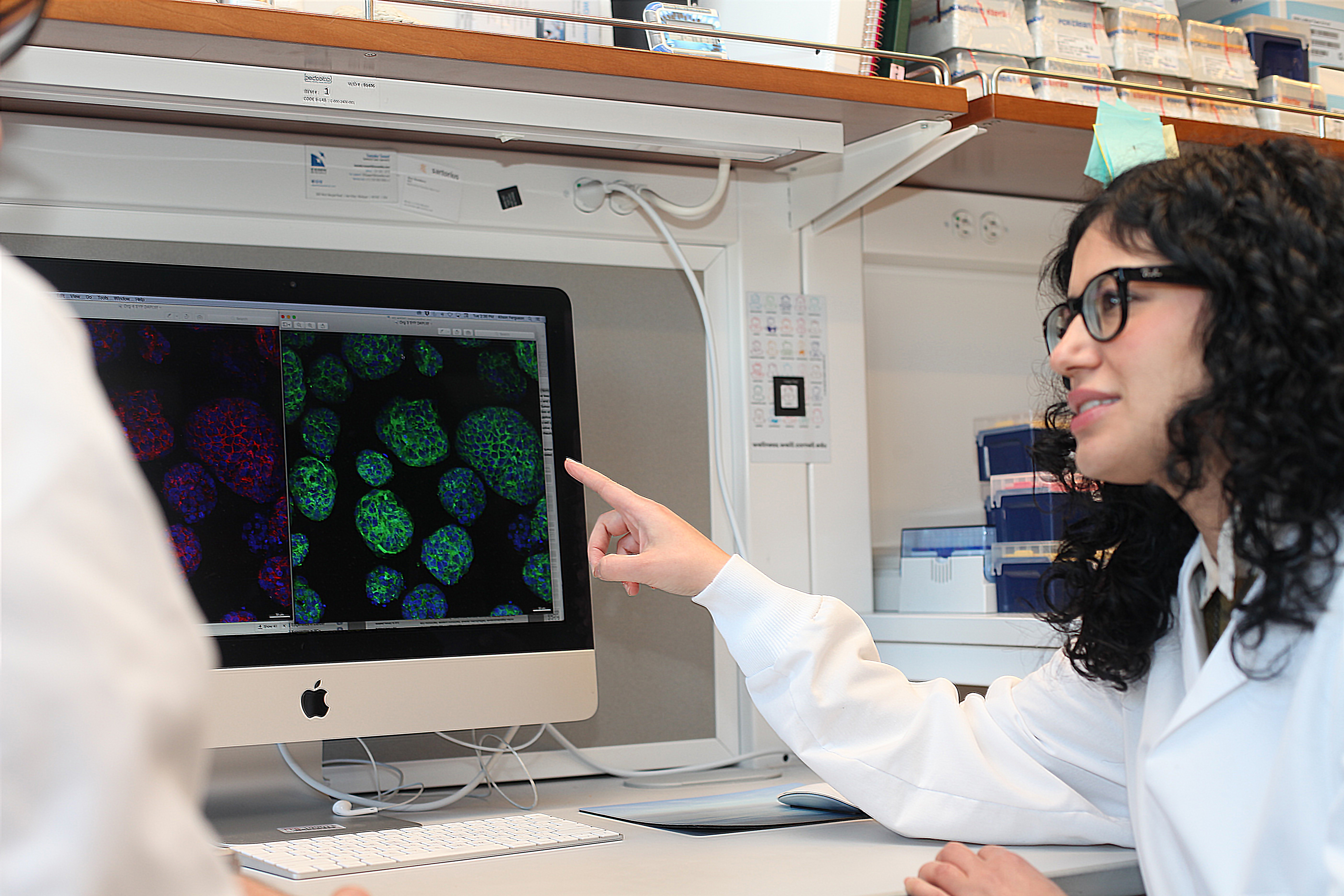
Loredana Puca, Ph.D., and a team of scientists from the Beltran Lab and Englander Institute for Precision Medicine at Weill Cornell Medicine, developed tumor organoids that recapitulate neuroendocrine prostate cancer, a rare and aggressive disease. The results, recently published in Nature Communications, detail the value of patient derived preclinical models.
A small amount of tumor cells taken from a patient are embedded in an extracellular matrix and grown in the laboratory. As the cells develop in vitro, they form three-dimensional structures that mimic the patient’s disease. These structures, called tumor organoids, are at the forefront of cancer research – they allow researchers to test new drugs and investigate new treatments with a personalized, targeted approach.
Loredana Puca, Ph.D., and a team of scientists from the Beltran Lab and Englander Institute for Precision Medicine at Weill Cornell Medicine, developed tumor organoids that recapitulate neuroendocrine prostate cancer, a rare and aggressive disease. The results, recently published in Nature Communications, detail the value of patient derived preclinical models.
Below, Dr. Puca, explains how the “avatar” of the tumors allow in-depth study, and help researchers identify new therapies.
A DIFFICULT TUMOR TO STUDY
Neuroendocrine prostate cancer is an uncommon disease that accounts for a small percentage of prostate cancer diagnoses. It is particularly aggressive with few therapeutic options beyond chemotherapy.
STUDY
For this study, researchers collected small fragments of metastatic tissues from 34 patients with metastatic prostate cancer, some of which with neuroendocrine prostate cancer. The samples were processed with enzymes capable of detaching cells from the small tumor mass. These tumor cells were then seeded in a gel to provide the scaffold that allows the growth of the organoid in three dimensions. The organoids were nourished with a combination of growth factors so that they “recapitulate the characteristics of the patient’s tumor.”
A MODEL THAT WORKS
As the tumor organoids grew, researchers compared them to each patients’ tumors. “We verified that the histological markers and the genomic profiles were similar to the patients,” Dr. Puca notes. “In addition, the organoids maintained patients’ features over time in culture.”
TOWARDS NEW THERAPIES
Weill Cornell researchers in collaboration with Cure First and SEngine Precision Medicine have tested 129 drugs approved by the FDA or in cancer trials using these organoids. “Based on the response of our 3D models, we identified drugs that may create new therapeutic opportunities for neuroendocrine prostate cancer patients.”
APPLICATIONS OF TUMOR ORGANOIDS IN THE FUTURE?
“If we could use such an approach in the future to develop clinical trials for specific compounds based on sensitivities tested on organoids, this would be an advancement for precision medicine.”
If you have questions about this study you can reach Dr. Loredana Puca (lop2011@med.cornell.edu) and Dr. Himisha Beltran (hip9004@med.cornell.edu) at Weill Cornell Medicine and the Englander Institute for Precision Medicine.
This work was supported by the Prostate Cancer Foundation and Dr. Puca received support from the American-Italian Cancer Foundation and a PCF Young Investigator Award.

